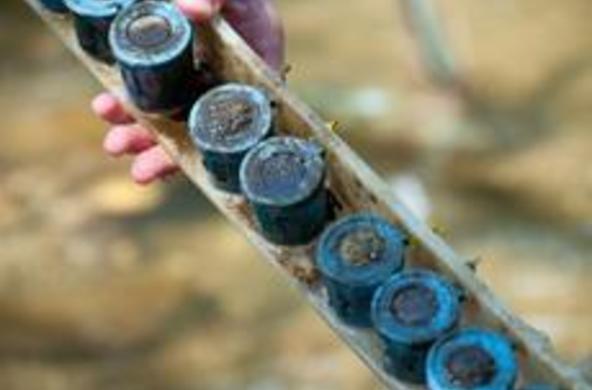Status: Past Project
Because cities concentrate people and resources, and they have the ability to impact adjacent areas, urban systems are an important management challenge.
A ground-breaking urban ecology project, the Baltimore Ecosystem Study investigates the ecological, cultural, and economic forces that shape the environmental quality of urbanized areas.
When thinking about ecological research, many people envision scientists studying natural areas. Classic projects, such ecosystem research in New Hampshire's White Mountains, conjure up images of forested research sites. But even the most rural sites exist within a matrix of human-induced ecological change, with rainfall in the country influenced by fossil fuel combustion in developed areas. While some research sites are covered in trees, others are dominated by buildings the science of ecology knows no boundaries.
Since the Institute's inception, scientists have been researching the ecology of urban areas. What began as the Urban-to-Rural Ecology Gradient Project, comparing urban forests in New York City to their rural and suburban counterparts, has evolved into collaboration between natural, physical and social scientists in the city of Baltimore, Maryland.
Directed by Institute ecologist Dr. Emma J. Rosi, Baltimore Ecosystem Study (BES) participants have been exploring the ecology of metropolitan Baltimore and they way urban dwellers interact with their environment since 1997.
By building a bridge between the natural and social sciences, BES strives to unravel how urban ecosystems function, with the goal of understanding this growing ecosystem type and incorporating the urban ecological system in the socio-political decision-making that influences the metropolitan environment. Over 35 researchers conduct the study, with partners from universities all over North America.
Education and Outreach
The ecological knowledge the BES creates helps support educational and community-based activities, and interactions between the project and the Baltimore community are important components of the project.
Outreach efforts include a summer program for K-12 students in Baltimore County, modules, kits and materials for educators, a Research Experiences for Undergraduates program and a Pathways to Environmental Literacy Program.
Baltimore Ecosystem Study project site >
- Publications



